We all know—or at least most of the readers of a blog like this know—that scene in High Fidelity where the record store clerks don’t sell a copy of Captain Beefheart’s Safe As Milk to a customer, just because they don’t like him. (That scene’s not in the book on which the film’s based, by the way.) No doubt that scenario has played out somewhere in the real world, but it hasn’t happened to me, though I’ve been to many, many record stores. At least a few of those clerks must not have liked me, or thought me hip, but no one’s refused to take cash just because of that.
Reading the book Record Store Days—a book that generally focuses on the kindler, gentler, most positive side of record retailing—recently brought back some of my weird record shopping experiences. There have been three instances where I was actually unable to buy a record displayed in a store, or at least some resistance was mounted to my purchase. Each of them involved rare LPs, and while not many people in the general public would care about those circumstances, they’ll probably be familiar to at least a few people reading this sort of blogpost. Right?
The first of these instances was both the only one in which I succeeded in buying the LP, and the only one where some sort of resistance was given against my completion of the purchase. This took place about 30 years ago in a San Francisco record store where the owner and staff made a big deal out of constantly telling the customers, “Anyone need any help? If you want to hear something, let us know and we’ll play it.” One of them made a big show of chatting me up about the three-volume Chocolate Soup for Diabetics series of rare UK ‘60s psych on display, though I didn’t have the money to buy them (I eventually did, though not at this store).
Not being the kind of guy who enjoys gratuitous banter with salespeople in any retail establishment, I’d patronized the shop for a year or two without taking advantage of their incessant offers to play LPs if you wanted to hear them. Until one day I spotted a rarity for $3. This was Buffalo Springfield’s self-titled debut album—but not the edition I already had. This was the first pressing, with one song, “Baby Don’t Scold Me,” that was replaced by “For What It’s Worth” (after that song became a hit) on most editions of the record—and never subsequently issued on a vinyl release.
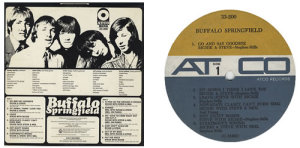
The back cover of the first pressing of Buffalo Springfield’s debut LP, listing a song, “Baby Don’t Scold Me,” that was removed from subsequent editions. The rest of the track listing was slightly different than the more common subsequent editions as well.
I wanted to be sure that the fairly beat-up copy played okay, and also—since the order of the songs, as listed on the back cover, was scrambled from the version I was used to—that “Baby Don’t Scold Me” actually did play when you put the needle on the record, and not “For What It’s Worth” or some other track I already had. So I went to the counter, which happened to be staffed by the owner on a weekday morning on which no other customer had yet entered the store. I asked him if I could hear just one track, “Baby Don’t Scold Me.” He acted as if I’d interrupted his lunch to ask him if I could eat the rest of his sandwich.
“I’m making a tape,” he grumbled.
I explained that I did really need to hear the song, as it was the only one I was buying the LP for, and I had to be sure it was on the record and played without a skip. I also explained that this was the edition of Buffalo Springfield’s debut that had a song that was not on any subsequent pressings, which is why I need to hear that track in particular.
“I always thought that was a lousy song,” chipped in someone else on the staff. “I’m actually glad they replaced it with ‘For What It’s Worth.’”
What customer service! What salesmanship!
They did reluctantly play the one song, and I did buy the LP. And I never went out of my way to recommend the store again. It, like most stores of that sort, went out of business quite a few years ago, though it looks like the owner might be doing some sort of mail-order, according to a website that hasn’t been updated since 2000.
“Baby Don’t Scold Me,” incidentally, has been readily available—though only in its mono version—since 2001 on the four-CD Buffalo Springfield box set. It had also been bootlegged since at least the mid-1980s, as well. And it’s not a lousy song, though it’s not as good as “For What It’s Worth.”
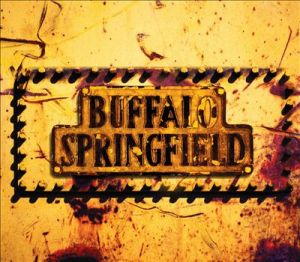
So does the official Buffalo Springfield box set, which won’t win any awards for imaginative cover design.
Across the bay, and also in 1983 or 1984, I had my only record store visit where I could not buy a disc I asked to purchase that was physically in the shop. This was in Rasputin’s on Telegraph Avenue in Berkeley (a few blocks north of its current location), which at that time was indisputably the best store in the Bay Area (a position it no longer holds). While browsing, I heard a record by the Move playing over the sound system—but it wasn’t any Move record I’d ever heard before. It was a live recording, and in pretty good fidelity.
I went up to the counter to take a look at the record, which was a Move bootleg I’d never seen before, and have never seen since. In fact, I’ve rarely seen any Move bootlegs, and certainly hadn’t seen one before hearing this LP. It’s so rare, in fact, that I can’t find an image of it on the Internet.
I think it had a price tag of $10, which was a lot of money for me then. Still, I asked if I could buy it. The guy behind the counter told me it was not for sale. My guess is it had just come in with a batch of used LPs, and he was keeping it for himself. At least he was polite about it.
There was a happy ending, sort of, to this failure—though I had to wait almost 30 years for it to play out. For in 2012, material from the Move in concert at the Fillmore in 1969—some tracks of which I’d heard, just once, on that bootleg—finally came out legitimately on Live at the Fillmore in 1969. This official release likely had better fidelity than the bootleg, and, as a double CD, had more music than the bootleg LP offered. And I got a review copy, though only as a CDR with a PDF of liner notes. My request for a finished copy when the album came out was ignored—until, a full two years later, it arrived in the mail. That’s the only time that’s happened to me either.
As an aside, it probably isn’t that rare for owners or staff of stores that sell used records to keep prizes from used buys for themselves, though it’s not common for them to actually play such finds in the store. The only time I can recall a staffer actually telling a customer he was keeping a record he’d bought—not from this specific customer, but a customer earlier in the day—was in 1982 at a store in Northeast Philadelphia. The record the owner was keeping for himself? The Blasters’ 1980 debut LP, American Music, on the small independent Rollin’ Rock label—which was indeed already rare even by 1982 (having been pressed in a run of just a couple thousand copies), though it finally got issued on CD (with bonus tracks of course) in 1997.
The Move aren’t a well known band (at least in the US), but the third and final time I had a hard time actually buying an album that was in the bins, the item in question was far more obscure than even a Move bootleg. If I remember correctly, this took place around 1990 in New York’s Soho district in Rocks In Your Head—yet another store, beloved in its day, that’s been gone for years, closing in 2006. I wasn’t expecting to find anything I particularly needed, but there was the first LP by Kahondo Style, 1985’s My Heart’s in Motion.
Kahondo Style’s second album, 1987’s Green Tea & Crocodiles (which I did already and still own), was a quite idiosyncratic and unclassifiable fusion of rock, pop, jazz, new music, art songs, Cole Porter, middle eastern-like chanted background vocals, and more. I knew they’d put out an LP before that, but I’d never seen it. Even a personal visit to its (now also long-gone) US distributor, New Music Distribution Service (within walking distance of Rocks In Your Head), had failed to land a copy.
So I brought the sleeve to the counter, quest fulfilled at last. And guess what? They had the sleeve, but not the actual LP. It was one of those stores that, probably to eliminate shoplifting and other such crimes, only put the covers on display, keeping the discs behind the counter. And they couldn’t find the disc.
So I left the store empty-handed. I haven’t seen My Heart’s in Motion since. I haven’t even heard it—not even once. As limited as the market must be, is anyone going to reissue this?
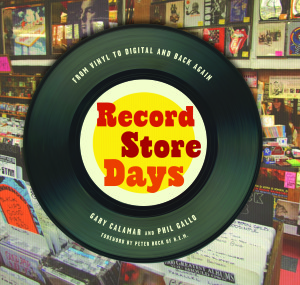
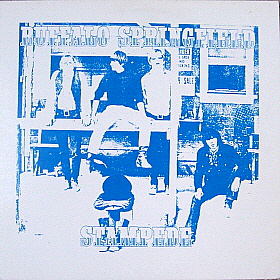
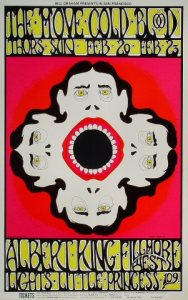
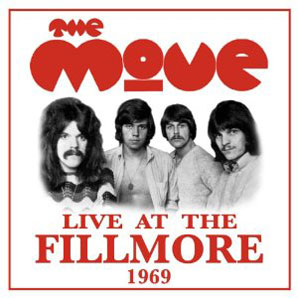
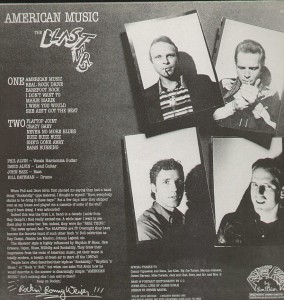
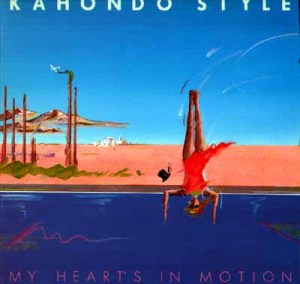

So much pleasure to read these articles. I saw “High fidelity” obviously And I love the record store stories. Thank you.
And I love the record store stories. Thank you.
Closest I can come to your story is having the shop assistant downstairs (the blues section) at Dobell’s in the Charing Cross Road in the 80’s tell me I couldn’t buy a Japanese re-issue of the Atlantic collection ‘Blues Piano, Chicago Plus’ I’d been looking at. Why? ‘Too good for you, mate, that’s why’. And then rang it up. Still a great LP.